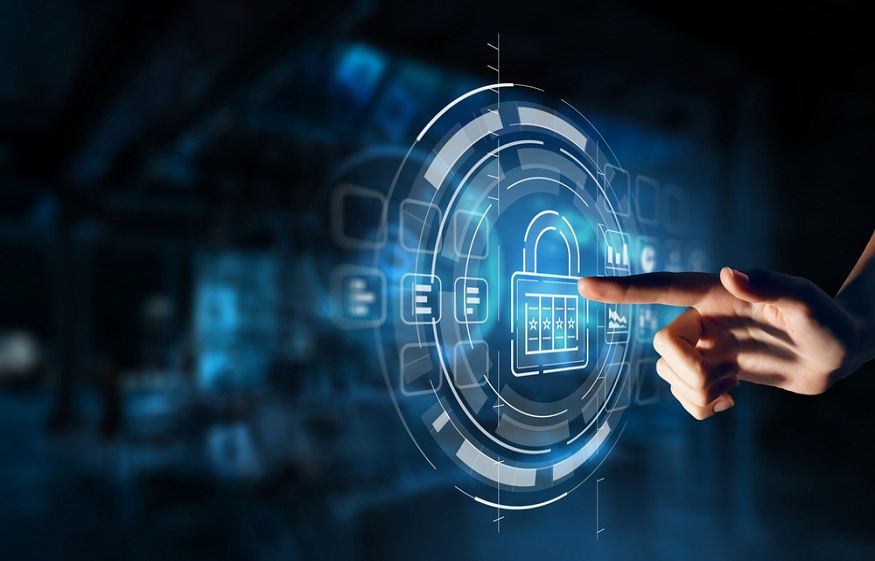The world of real estate is booming, and with it comes an increased reliance on technology. From online listings and virtual tours to digital communications and electronic signatures, you likely use a variety of digital tools to streamline your business and connect with clients. But with this convenience comes a growing concern: cybersecurity.
Cybercriminals are constantly evolving their tactics, targeting individuals and businesses alike. As a real estate professional, you hold a treasure trove of sensitive data – your own and your clients’. This includes names, addresses, Social Security numbers, financial information, and property details. A cyberattack could compromise this data, leading to financial losses, reputational damage, and even legal trouble.
But fear not! By taking proactive steps and adopting a cybersecurity mindset, you can significantly reduce the risk of falling victim to a cyberattack. Click here for your crash course on keeping your data safe:
Understanding the Threats:
- Phishing Attacks: These are emails or text messages designed to trick you into revealing personal information or clicking on malicious links. They often appear to be from legitimate sources like banks, credit card companies, or even government agencies.
- Malware: This malicious software can be downloaded unknowingly through infected websites, emails, or attachments. Malware can steal data, lock you out of your systems, or even hijack your computer to launch further attacks.
- Ransomware: This particularly nasty form of malware encrypts your data, rendering it inaccessible. Cybercriminals then demand a ransom payment to decrypt your files.
- Data Breaches: These occur when unauthorized individuals gain access to a database containing sensitive information. Data breaches can be caused by hacking, malware, or even human error.
Building Your Defenses
- Strong Passwords: The foundation of good cybersecurity is strong passwords. Use a unique, complex password for each of your online accounts. Don’t use easily guessable information like birthdays or pet names. Consider using a password manager to create and store strong passwords securely.
- Multi-Factor Authentication (MFA): This adds an extra layer of security to your online accounts by requiring a second verification step, like a code sent to your phone, in addition to your password. Enable MFA wherever available.
- Beware of Phishing: Always be suspicious of unsolicited emails and text messages. Don’t click on links or attachments from unknown senders. Verify the sender’s email address carefully and hover over links before clicking to see the actual destination URL.
- Keep Software Up-to-Date: This includes your operating system, web browser, security software, and any other applications you use. Updates often contain security patches that fix vulnerabilities hackers can exploit.
- Secure Your Wi-Fi Networks: If you’re using public Wi-Fi, avoid accessing sensitive information or conducting financial transactions. Consider using a Virtual Private Network (VPN) to encrypt your internet traffic on public networks.
- Be Cautious with Downloads: Only download software and applications from trusted sources. Don’t open attachments from unknown senders and be wary of clicking on links in emails.
Protecting Your Clients’ Data:
- Data Security Measures: Implement data security measures like encryption to protect sensitive information on your devices and computers.
- Client Communication: Educate your clients about the importance of cybersecurity and how to protect their own information.
- Contractual Obligations: Consider including clauses in your client contracts that outline your data security practices and responsibilities regarding client information.
Know About California Real Estate License Course
If you’re looking to become a real estate professional in California, cybersecurity awareness is likely already integrated into your California real estate license course curriculum. Many states, including California, require aspiring real estate agents to complete mandatory education that covers topics like fair housing laws, ethics, and, increasingly, data privacy and cybersecurity best practices. This ensures that new agents are equipped with the knowledge to safeguard sensitive client information.
Staying Vigilant:
Cybersecurity is an ongoing battle. New threats emerge all the time. Here are some additional tips to stay vigilant:
- Regular Backups: Back up your data regularly to a secure location. This allows you to recover your files in case of a cyberattack or data loss.
The 3-2-1 Rule: This is a widely recommended backup strategy:
- 3 Copies: Always have at least three copies of your data. This includes the original on your device and two backups in different locations.
- 2 Different Media: Store your backups on two different types of media. For example, one copy on an external hard drive and another in the cloud.
- 1 Offsite Backup: Keep at least one copy of your backup offsite. This ensures you can still access your data even if your computer or local storage device is compromised.
- Stay Informed: Subscribe to reputable cybersecurity news sources to keep yourself updated on the latest threats and best practices.
- Report Suspicious Activity: If you suspect you’ve been a victim of a cyberattack, report it immediately to the relevant authorities and consider seeking professional help to clean up your systems and prevent further damage.
Reporting Benefits
Reporting the attack not only helps authorities track down cybercriminals but also benefits you in these ways:
- Documentation: Having an official report can be helpful if you need to file insurance claims or notify clients about a data breach.
- Alerts for Others: Reporting helps authorities identify trends and warn others about specific

